DIAGNOSING AND TREATING HYPOTHYROIDISM
The ABCs of TSH, T4, and T31
To discuss how hypothyroidism is diagnosed and treatment options for hypothyroidism, it is helpful to first understand key terms.
DIAGNOSIS IS IMPERATIVE2
To arrive at a correct diagnosis of hypothyroidism, your healthcare provider may consider information drawn from the following:

SYMPTOMS
The range of signs and symptoms can include weight gain, feeling colder, fatigue, dry skin, becoming forgetful and depressed, weakening muscles, thinning hair, heavier or irregular menstrual cycles, and more.

MEDICAL AND FAMILY HISTORY
It’s important to tell your healthcare provider:
about changes in your health that suggest your body is slowing down
if you’ve ever had thyroid surgery
if you’ve ever had radiation to your neck as cancer treatment
whether any family members have thyroid (or autoimmune) disease

PHYSICAL EXAM
Your healthcare provider will check your thyroid gland and look for other physical changes.
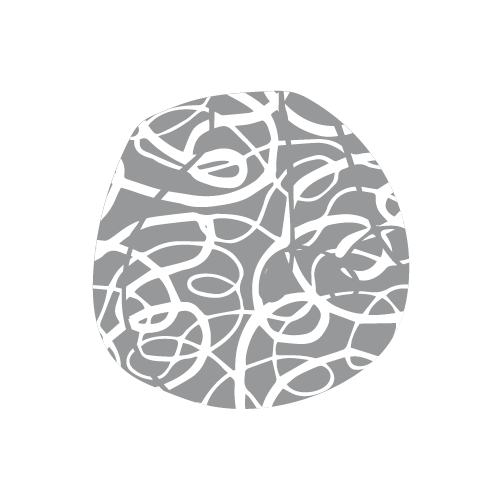
TSH (THYROID-STIMULATING HORMONE) TEST
The most important and sensitive test for diagnosing hypothyroidism measures how much of the thyroid hormone thyroxine (T4) that the thyroid gland is making.

T4 TESTS
These tests measure the T4 in your blood to help in diagnosing hypothyroidism. Most of the T4 in your blood is attached to a protein—thyroxine-binding globulin—and the “bound” T4 cannot get into body cells. About 1%-2% of T4 in the blood is unattached—or “free”—and can get into cells. Two simple blood tests—the free T4 and the free T4 index—measure the amount of unattached T4 that is in your blood and available to get into cells.

T3 TEST
This test measures the level of T3, which is made/converted from T4 and used throughout your body. While many healthcare providers consider this test, it is less commonly used in diagnosing hypothyroidism than TSH and T4 tests, as it takes longer to show an abnormality.

REVERSE T3 (RT3) TEST
This test measures the inactive form of the hormone T3. Under normal conditions, the body changes T4 to T3 and RT3 in specific amounts. However, the amount of T4 converted to RT3 can rise, such as when the body is under stress. RT3 levels alone may not be able to tell you much about the health of your thyroid—but combining the RT3 test with the T3 test to compare the levels may help you understand your thyroid health.

THYROID ANTIBODY TESTS
These tests may help determine if your hypothyroidism is related to an autoimmune condition such as Hashimoto’s disease. The tests are designed to measure the levels of antibodies against thyroid peroxidase (TPO), thyroglobulin (Tg), and TSH receptor, all of which play an important role in producing thyroid hormones.
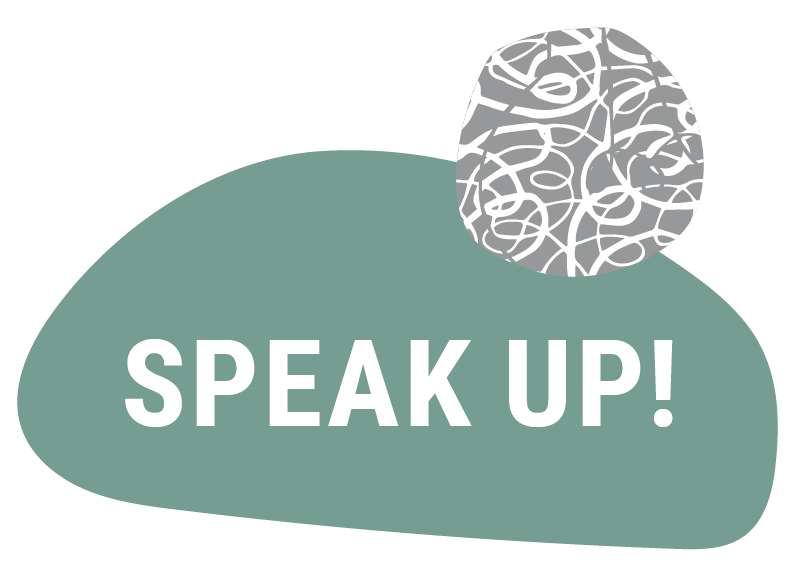
Ask your healthcare provider to clearly explain TSH, T4, and T3—along with the associated tests—and how it all specifically relates to your condition. Feel empowered to be fully informed.
HYPOTHYROIDISM TREATMENT OPTIONS1,2
Treating your condition is important. Hypothyroidism can’t be cured; but in nearly everyone affected, it can be controlled. Just like everyone’s hypothyroidism is different, there are different options for treating hypothyroidism. It is important to work with your healthcare provider to find the approach that’s right for you.
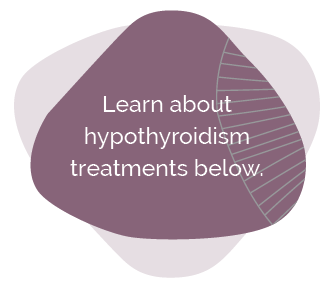
SYNTHETIC THYROXINE (T4)
REPLACEMENT THERAPY
Treatment involves replacing the amount of hormone that your thyroid can no longer make, bringing your
T4 and TSH levels back to your normal.
Synthetic thyroxine pills, capsules, or liquid contain a synthetic T4 exactly like the T4 that the thyroid gland makes.
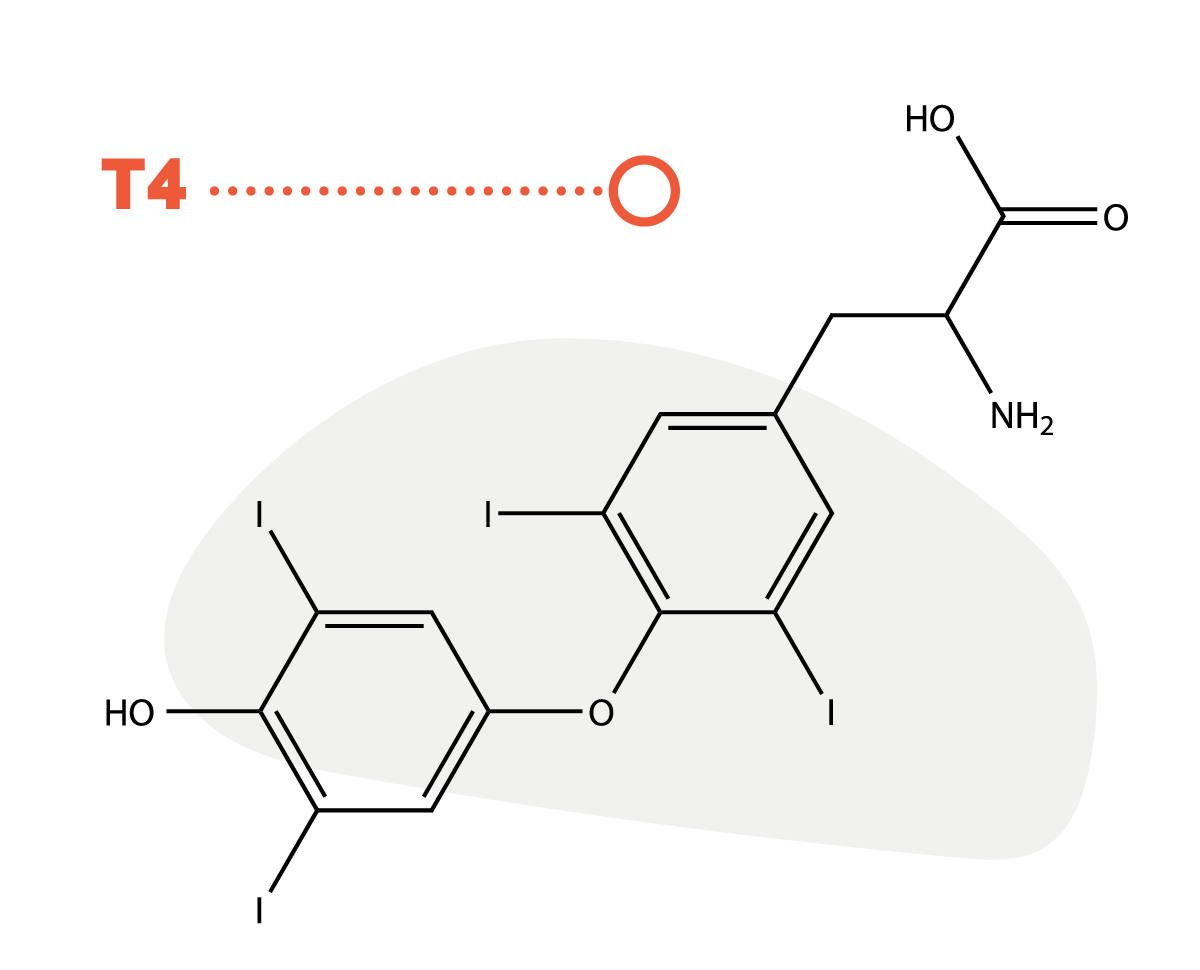
In some cases, your healthcare provider may also need to add synthetic T3
SYNTHETIC THYROXINE (T4) AND TRIIODOTHYRONINE (T3) COMBINATION REPLACEMENT THERAPY
Treatment involves taking both a synthetic form of T4 (levothyroxine) and a synthetic form of T3 (liothyronine) as a combination therapy.
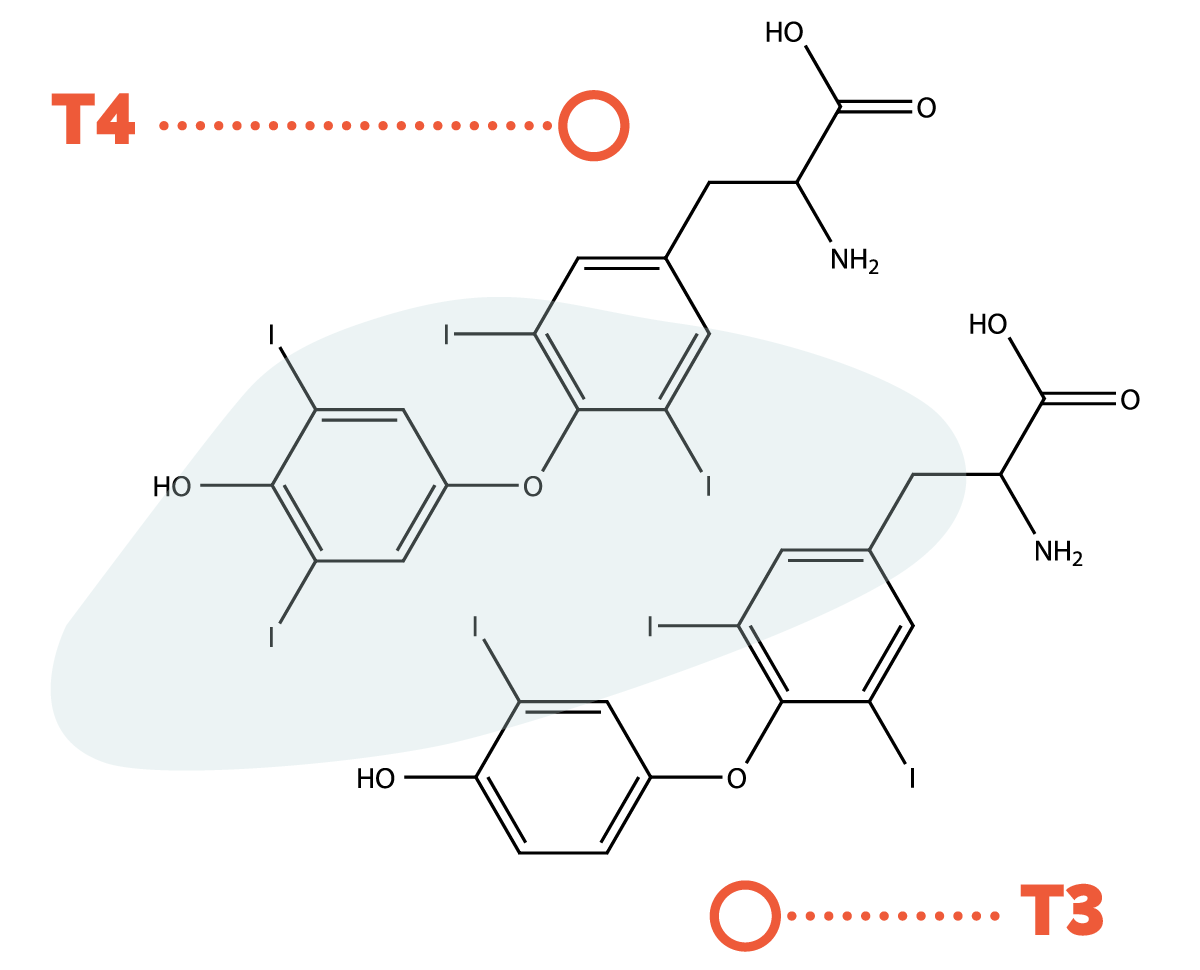
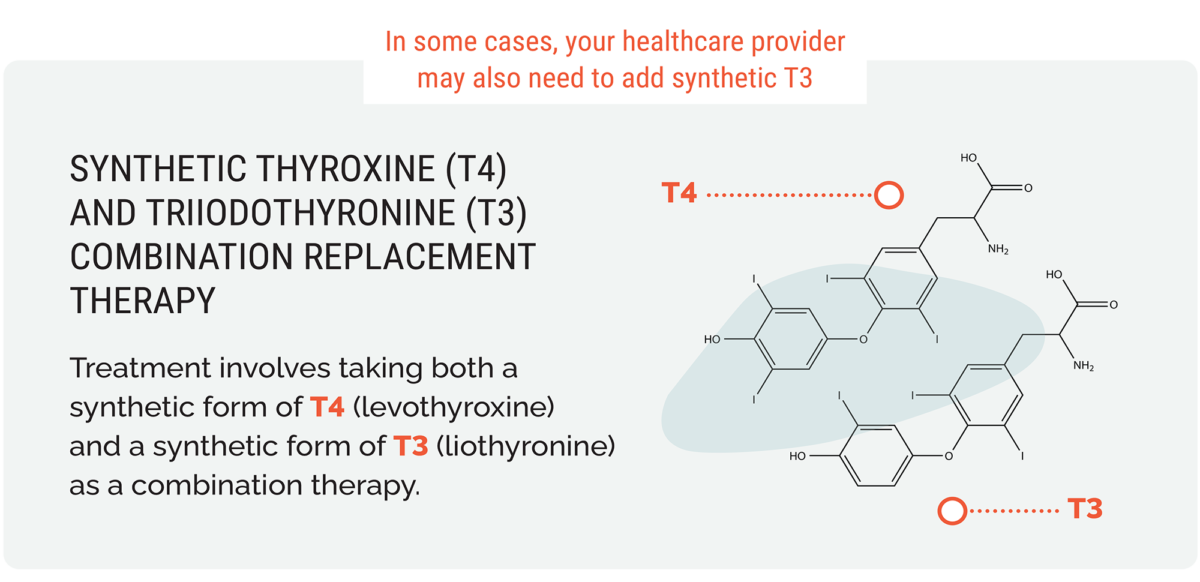
NDT COMBINATION REPLACEMENT THERAPY
NDT—natural desiccated thyroid (also sometimes referred to as DTE)—medications are a combination therapy that contain T4, as well as T3 and other thyroid hormones.
Made from porcine thyroids (the thyroid glands of pigs, which produce thyroid hormones biologically similar to those found in humans), NDT therapy has been used to treat hypothyroidism for decades, and the NDT produced today can be used as an alternative to synthetic therapies.
Note that NDT (DTE) products have not been reviewed by the FDA for safety or efficacy.
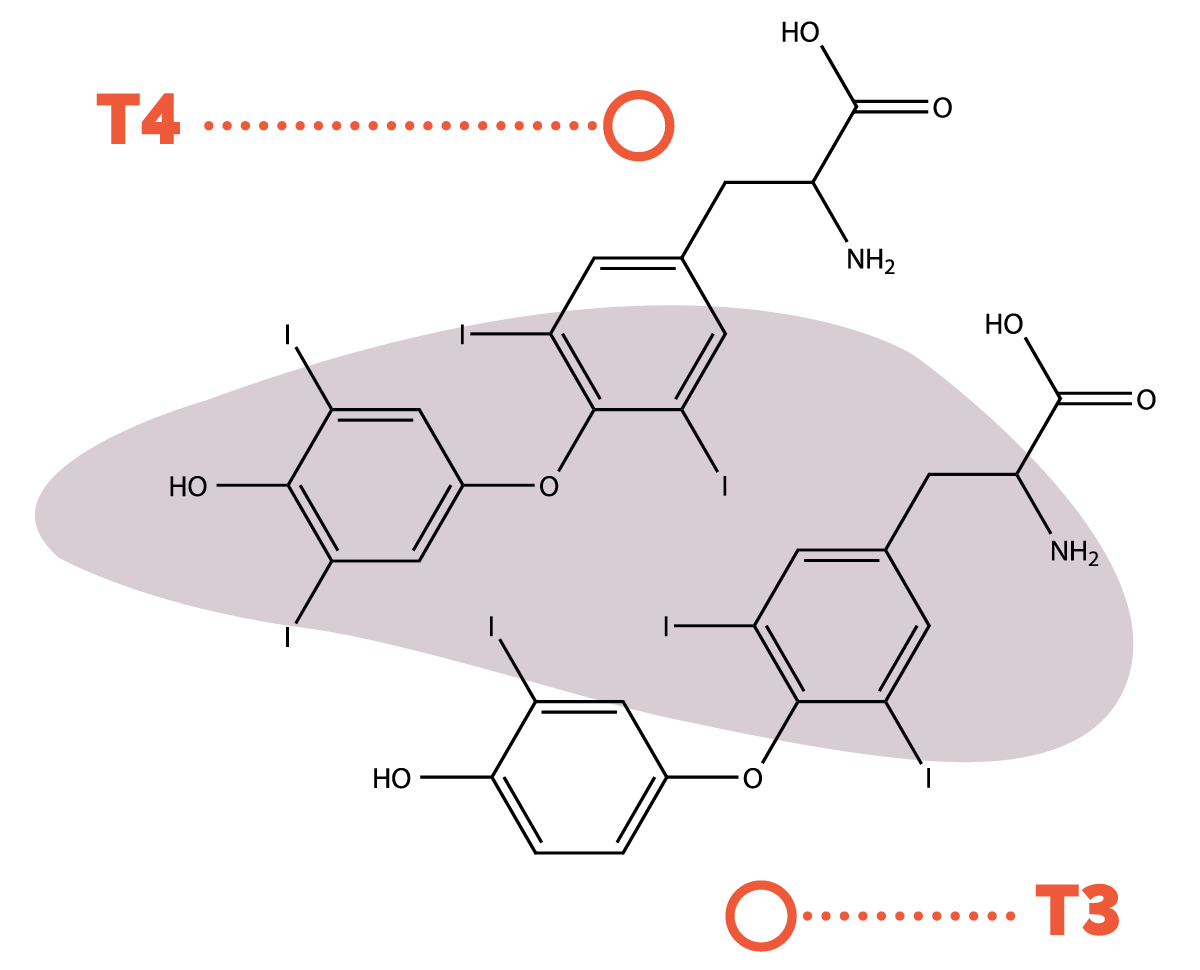
SIDE EFFECTS AND COMPLICATIONS
The dangers of taking levothyroxine are caused by the amount you take:
Too little will continue your hypothyroidism.
Too much can lead to hyperthyroidism—an overactive thyroid gland.
If you experience hyperthyroidism symptoms during thyroid hormone replacement therapy, you should have your TSH tested to determine if changing your dose—or your treatment—is necessary. Hyperthyroidism, compared to hypothyroidism, is a condition in which thyroid hormones are overproduced in the body—that is, the thyroid gland is overactive. Talk to your healthcare provider to help ensure that you have the right treatment plan for you.
LIVING WITH HYPOTHYROIDISM
SEE MORE >
References: 1. American Thyroid Association. Thyroid Function Tests. Accessed August 14, 2020. https://www.thyroid.org/thyroid-function-tests/ 2. American Thyroid Association. Hypothyroidism (Underactive). Accessed August 14, 2020. https://www.thyroid.org/hypothyroidism/
















